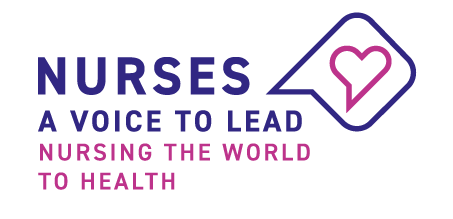IND Case Study Caring for those who have suffered Sexual Assault
There are six SATUs in Ireland which all provide an agreed model of care with close links with the Rape Crisis Network Ireland, Forensic Science Ireland, the police (An Garda Síochana) and allied specialities such as The Child and Family Agency and Infectious Disease Clinics (TUSLA). In 2018, 865 patients attended for SATU care.

Nurses and Midwives first took up positions as Forensic Clinical Examiners in Ireland in 2009 following a yearlong training in conjunction with RCSI (Royal College of Surgeons in Ireland). Training involved both clinical and academic components. Midwives and nurses who qualified went onto become nurse/midwife drug prescribers, so we are completely autonomous practitioners working within a multidisciplinary team. I was one of the first midwives to train and we are now celebrating our 10-year anniversary.
In 2009, there was a limited services available for patients. People could generally only attend SATU if they had reported the incident to the police. Furthermore, there was limited follow up available. Since 2009, nurses and midwives in SATU have accomplished advances in patient care.
If a patient discloses sexual assault or rape within seven days of an incident, they are encouraged to report this incident to the police as soon as possible. The police contact SATU and an appointment for forensic clinical examination is facilitated within three hours of the request. SATU care involves consent to take a medical/surgical and relevant history and outline details of the incident. Physical examination and documentation of physical findings occurs and relevant forensic swabs and samples (e.g. hair combing, oral and fingernail swabs, anogenital swabs and toxicology) are collected. Patients are offered medication such as emergency contraception, antibiotics, Hepatitis B vaccine and PEPSE (HIV prophylaxis). They will also meet with psychological support workers from Rape Crisis Centres (RCCs). Patients are given an appointment to return to SATU for a sexual health screen.
Patients are encouraged to report the incident to the police although there are other options of care also available to them, including collection and secure storage (for up to one year) of forensic swabs and samples within SATU. This provides them with time to consider whether they wish to disclose the incident to the police. Alternatively, if adult patients are certain they do not wish to report the incident, they can choose to attend SATU for a sexual health screen and to access relevant medication and psychological support.
In addition to our forensic role, we are involved with audit and research and health promotion. We carry out teaching sessions with the police, general practitioners, ambulance and emergency departments, homeless shelters and schools.
CMS Forensic Clinical Examiners developed sexual health clinics to provide a sexual health screen one month after the initial visit. If a patient does not attend, they are contacted and all patients have two opportunities to attend before being discharged from the clinic.
One week after a patient’s attendance at SATU, (with the patient’s permission) we telephone to offer support and also to remind them of their follow up appointments. Patients are telephoned regarding their sexual health screen results as they are generally anxious to get these results as soon as possible.
A specialised SATU chart was developed and updated over the years by a documentation group consisting of forensic clinical examiners, RCC personnel, members from the police and Forensic Science Ireland. As specialists, we work in line with multiagency National Guidelines. A guidelines committee was established to update these guidelines regularly. The most recent edition was published in 2018 with input from all relevant agencies.
I have developed a risk reduction programme which I deliver to students in secondary school. The programme discusses aspects of sexual assault and rape, consent, legal issues, ways to stay safe, information regarding what happens during a forensic clinical examination and what a forensic examination kit involves. This programme has been in operation for the last 10 years and the feedback from students is very positive.
Part of our role also involves giving evidence for court cases. While our training prepared us for this aspect of our role, even after 10 years, it remains daunting. In April 2019, I was asked to go to Norfolk Naval Base, Virginia, USA to give evidence on a case where the forensic examination had taken place in SATU Rotunda. This was a military court case so quite different from the Central Criminal Courts in Ireland. There was a six-member jury of the alleged assailants peers. It was quite a surreal experience for me. I was the first Clinical Midwife Specialist to attend a court case outside of Ireland. While this was a different and challenging experience I found it worthwhile and very educational.
Ten years into the speciality of forensic nursing, we have progressed so far, but we still have more to do. While this continues to be a challenging role, it is both interesting and valuable and we are always foraging initiatives to improve care for our most vulnerable patients. I continue to learn every day and am committed to continuing this complex yet rewarding work.

